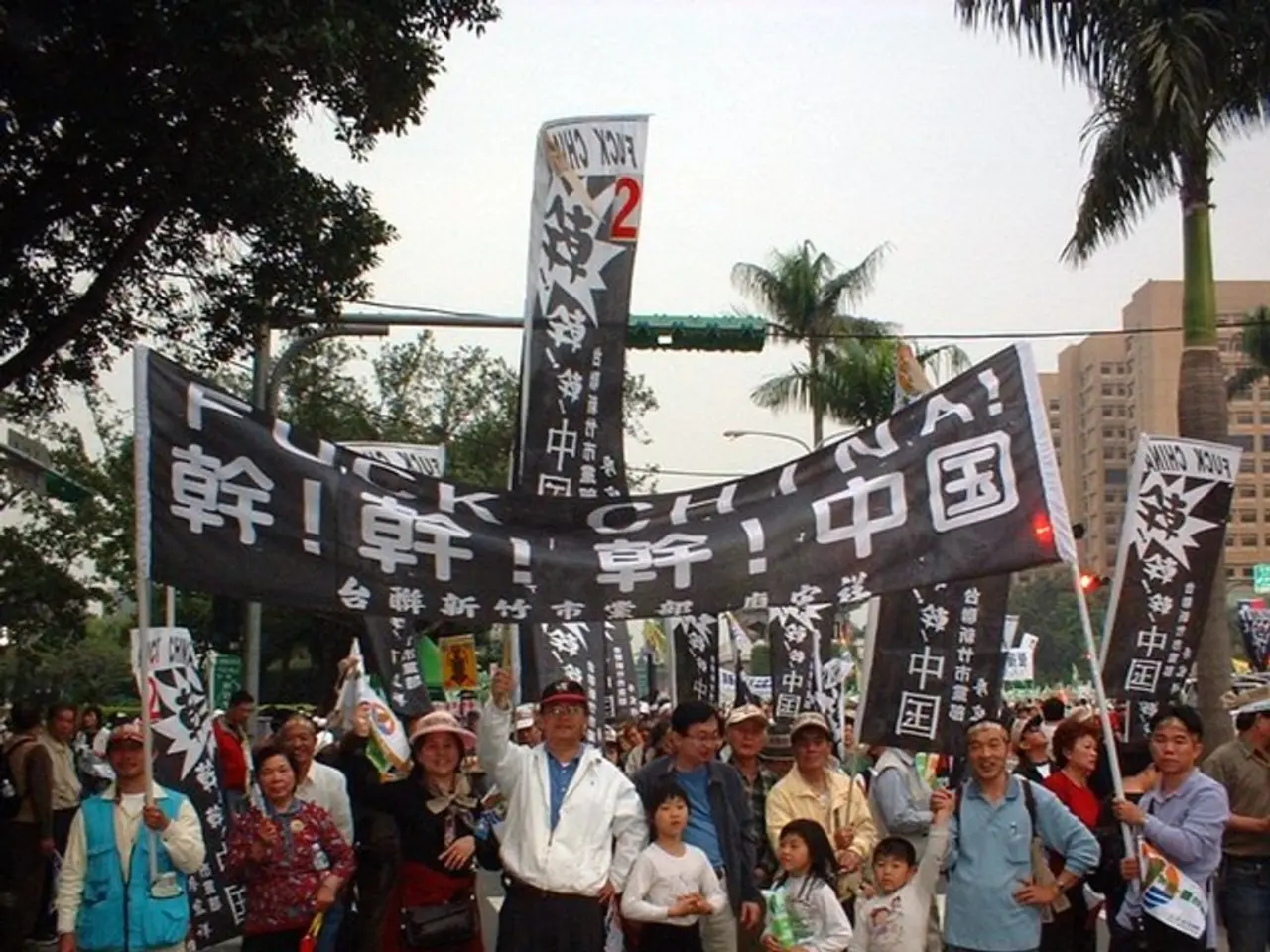Hungarian Government Threatens EU Reps for Supporting "Pride Parade" Defiance in Budapest
Hungary warns EU personnel of potential imprisonment for voicing support in "Pride" advocacy
In Hungary, exhibitions of homosexuality are prohibited—a fact demonstrated by the police's ban on the "Pride Parade" in Budapest. The city administration, however, wants to defy this ban and organize the event anyway, leading to a heated dispute. The Hungarian government has warned EU representatives not to participate, despite the legal implications.
Hungarian Justice Minister Bence Tuzson sent a letter to numerous EU embassies, stating, "The Pride is a banned gathering under our law. Participating is a criminal offense." Diplomats are advised to inform their staff about the situation, as participants might face fines of up to €500, or even a year in prison for organizing or advocating for participation.
The statement of support from numerous diplomatic and cultural representations across 33 countries prompted this response from the Hungarian government. Notably, five EU member states—Italy, Croatia, Slovakia, Romania, and Bulgaria—did not join this collective statement.
Politics and Controversy Surrounding LGBTQ+ Rights in Hungary
Back in March, Hungary passed an amendment to its law that targeted the annual Pride Parade. This legislation forbids assemblies that violate Hungary's LGBTQ law, which includes any event promoting or displaying homosexuality to minors. The 2021 law also prohibits gender change and reinforces a ban on the Pride Parade.
Due to these restrictions, a ban on Budapest Pride events was issued last Thursday, citing the effectively enacted law. However, Budapest's Lord Mayor and co-organizers remain adamant about holding the event as a city-sponsored occasion, aiming to circumvent the need for police approval. Yet, police have maintained their ban, creating a legal quandary around the event's occurrence.
Meanwhile, a far-right group was permitted to hold a march on the same day and route, without interference from the police. This inconsistency has drawn criticism and outrage from human rights organizations and supporters worldwide.
International Condemnation and Solidarity
The European Commission's President, Ursula von der Leyen, has publicly denounced the ban and urged Hungary to lift it, assuring the safety of organizers and participants without fear of prosecution. She expressed solidarity with the LGBTQ+ community in Hungary and criticized the restrictive Hungarian law that prohibits homosexual depictions and enables invasive measures like facial recognition technology[1][2].
Despite this condemnation, Hungary's government continues to enforce the ban and threaten EU representatives with arrest for intending to participate in the outlawed events[1][3]. To protest these discriminatory actions, various human rights organizations and supporters have petitioned Hungarian authorities to allow the Pride event to take place unhindered, calling on police to respect the right to peaceful assembly[4].
Sources: ntv.de, jog/AFP, 1, 2, 3, 4
- Hungary
- LGBTIQ
- Viktor Orban
In light of Hungary's ongoing ban on the Pride Parade, the Hungarian Justice Minister, Bence Tuzson, has communicated to EU embassies that participation in the outlawed events could lead to criminal charges. This communique came following a statement of support from numerous diplomatic and cultural representations across 33 countries.
Amidst this controversy, the EU Commission's President, Ursula von der Leyen, has publicly denounced the ban and criticized Hungary's restrictive law that prohibits homosexual depictions. She called for the safety of organizers and participants and urged Hungarian authorities to respect the right to peaceful assembly.




